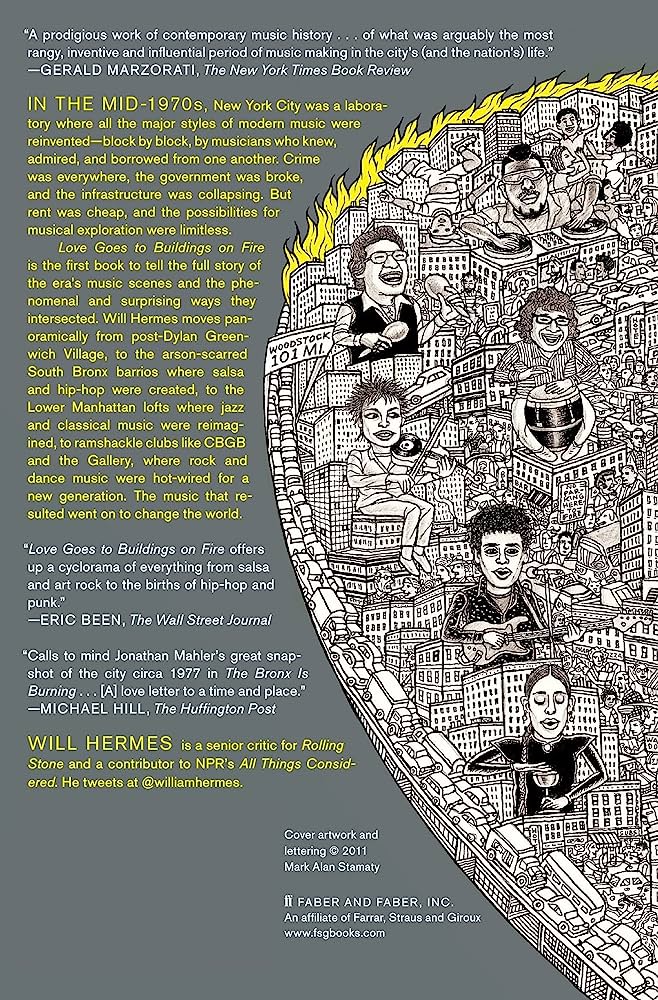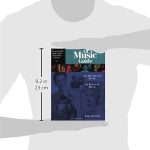Modern gospel music is a contemporary genre that combines elements of traditional gospel with various styles like r&b, hip-hop, pop, and rock. It has evolved to reach a wider audience with its catchy melodies, uplifting lyrics, and diverse musical influences.
This genre not only continues the rich tradition of praising and worshiping god but also incorporates modern sounds and production techniques to create a fresh and vibrant experience for listeners. From artists like kirk franklin and tasha cobbs leonard to groups like hillsong worship and elevation worship, modern gospel music has made a significant impact on both the christian and mainstream music industries.
It provides a platform for artists to express their faith and connect with people from different backgrounds through the power of music.

Credit: issuu.com
A Brief History Of Gospel Music
Origins Of Gospel Music In African-American Communities
Gospel music has deep roots in african-american communities and is an important part of their cultural heritage. The origins of gospel music can be traced back to the late 19th and early 20th centuries, when african-american communities sought solace and hope through spiritual music in the face of hardship and oppression.
Some key points about the origins of gospel music are:
- Gospel music emerged from the fusion of african musical traditions, such as call and response singing, with the influence of christian hymns and spirituals brought by enslaved africans.
- African-american communities used gospel music as a form of expression and an outlet for their emotions and experiences. It provided a way to communicate their faith, share their struggles, and celebrate their resilience.
- The spirituals and hymns sung in churches played a significant role in shaping the early gospel music. The melodies, rhythms, and themes found in spirituals and hymns laid the foundation for the distinctive sound of gospel music.
Influence Of Spirituals And Hymns On Early Gospel Music
The influence of spirituals and hymns on early gospel music cannot be understated. These musical forms provided the inspiration and framework for gospel music to evolve and develop its unique style. Consider the following points:
- Spirituals, which were rooted in the religious experiences of enslaved africans, often used biblical narratives and themes of liberation. These elements were incorporated into gospel music, reflecting the struggles and hopes of african-american communities.
- Hymns, with their rich harmonies and melodic structures, introduced new musical techniques that were adopted and adapted by gospel musicians. The use of choral arrangements and complex harmonies became common in gospel music, creating a more vibrant and dynamic sound.
- The lyrics of spirituals and hymns emphasized faith, redemption, and the power of divine intervention. These themes became central to gospel music, allowing it to speak directly to the hearts and souls of listeners.
Introduction Of Instrumentation And Harmonies
As gospel music continued to evolve, new elements were added to enhance its sound and impact. Instrumentation and harmonies played a pivotal role in shaping the development of gospel music. Consider the following points:
- The introduction of instruments, such as the piano, organ, and later, the guitar, brought an added depth and richness to gospel music. These instruments provided a melodic and rhythmic foundation that complemented the vocals and supported the emotional intensity of the music.
- Gospel music also embraced harmonies, building on the choral traditions of hymns and spirituals. Vocal harmonies added layers of complexity and created a sense of unity and solidarity among singers and listeners alike.
- The integration of instrumentation and harmonies made gospel music more dynamic and captivating. It allowed for greater creativity and experimentation, leading to the development of different gospel sub-genres, such as traditional gospel, contemporary gospel, and gospel soul.
Evolution Of Gospel Music Over The Years
Over the years, gospel music has continued to evolve and adapt to the changing times, while still retaining its spiritual and cultural significance. Consider the following points:
- The mid-20th century saw the rise of gospel music as a popular genre in mainstream music. Artists like mahalia jackson and the staple singers gained national recognition, bringing gospel music to a wider audience.
- Gospel music became a source of inspiration for other genres, such as soul, r&b, and even rock and roll. Its influence is evident in the music of artists like aretha franklin and ray charles.
- In recent years, gospel music has undergone further transformations, with artists blending traditional gospel with contemporary elements, such as hip-hop, pop, and electronic music. This fusion has broadened the appeal of gospel music and introduced it to new audiences worldwide.
Gospel music, with its rich history and powerful message, continues to be a source of inspiration, comfort, and celebration. As it enters the modern era, gospel music remains a testament to the resilience, faith, and creativity of african-american communities.
The Modern Gospel Music Revolution
Fusion Of Gospel With Contemporary Christian Music (Ccm)
Gospel music has experienced a revolutionary fusion with contemporary christian music (ccm) in recent years. This convergence has brought about a fresh and dynamic approach to gospel music, attracting new audiences and spreading the message of faith in a more contemporary way.
Here are some key points to consider:
- Greater accessibility: The fusion of gospel with ccm has made the music more accessible to a wider audience. The incorporation of modern musical elements and styles has helped bridge the gap between traditional gospel music and mainstream christian music, appealing to listeners across different age groups and musical preferences.
- Blending of musical elements: Gospel music infused with ccm now combines traditional gospel sounds, such as soulful vocals and lively harmonies, with the modern musical elements of ccm, including rock, pop, and even hip-hop beats. This blending creates a unique and engaging sound that resonates with both new and long-time fans of gospel music.
- Relevance to contemporary culture: The fusion of gospel with ccm has allowed the music to remain relevant and connected to the issues and experiences of contemporary culture. By incorporating ccm elements and styles, gospel music reflects the language and musical tastes of today’s generation, enabling listeners to relate to the message of faith in a more personal and relatable way.
Incorporation Of Different Musical Genres Into Gospel
In recent years, there has been a remarkable trend in gospel music – the incorporation of various musical genres into the traditional gospel sound. This infusion of different styles has brought about a fresh and diverse range of gospel music, attracting a wider audience and breaking down cultural barriers.
Consider the following:
- Jazz and gospel: The marriage of jazz and gospel has resulted in a rich and soulful blend of musical styles. The improvisational nature of jazz complements the expressive and emotive qualities of gospel music, creating a harmonious fusion that captivates listeners with its smooth melodies and intricate rhythms.
- R&b and gospel: The incorporation of r&b influences has breathed new life into gospel music, infusing it with contemporary sounds and catchy hooks. The soulful vocal delivery of r&b artists combined with the powerful messages of gospel music has created a dynamic and captivating genre that resonates with audiences around the world.
- Latin and gospel: The fusion of latin rhythms and gospel melodies has brought about an energetic and infectious genre. The vibrant sounds of salsa, merengue, and latin percussion enhance the uplifting and celebratory nature of gospel music, creating a fusion that inspires joy and praise.
Rise Of Gospel Choirs And Contemporary Gospel Artists
In recent years, there has been a significant rise in the popularity of gospel choirs and contemporary gospel artists. This resurgence has brought a fresh and vibrant energy to the genre, attracting new fans and generating widespread recognition. Here are a few key points to consider:
- Gospel choir revival: Gospel choirs have experienced a revival in recent years, with their powerful harmonies and spirited performances captivating audiences around the world. These choirs bring together a diverse group of individuals, unified by their shared love for gospel music, creating a sense of community and celebration.
- Contemporary gospel artists: Contemporary gospel artists have emerged as influential figures in the genre, blending traditional gospel elements with modern musical styles. Their unique sound and heartfelt lyrics have resonated with listeners of all backgrounds, resulting in mainstream success and increased exposure for gospel music.
- Cultural diversity: The rise of gospel choirs and contemporary gospel artists has also contributed to a greater representation and celebration of cultural diversity within the genre. Artists from various ethnic backgrounds have brought their unique musical influences and perspectives to gospel music, creating a tapestry of rich and diverse expressions of faith and worship.
Impact Of Technology On The Production And Distribution Of Gospel Music
Technology has played a significant role in revolutionizing the production and distribution of gospel music. Advancements in recording techniques, digital platforms, and social media have allowed gospel artists to reach a global audience and connect with fans in unprecedented ways.
Consider the following:
- Recording advancements: Technology has made it easier and more affordable for gospel artists to produce high-quality recordings. From home studios to professional recording facilities, artists have access to a wide range of tools and software that enhance the production process and ensure the highest level of audio quality.
- Digital platforms: The rise of digital platforms, such as streaming services and online music stores, has revolutionized the distribution of gospel music. Artists can now reach a global audience with the click of a button, making their music accessible to fans around the world. This has expanded the reach and impact of gospel music beyond traditional boundaries, allowing it to touch lives across cultures and continents.
- Social media and online community: Gospel artists can now connect directly with their fans through social media platforms, building a strong online community of supporters. This direct interaction allows artists to share their music, testimonies, and messages of faith in real-time, creating a deeper sense of connection and engagement with their audience.
The fusion of gospel with ccm, the incorporation of different musical genres, the rise of gospel choirs and contemporary artists, and the impact of technology have all contributed to the modern gospel music revolution. These advancements have brought about a fresh and dynamic approach to gospel music, attracting new listeners and spreading the message of faith in innovative and exciting ways.
Key Elements Of Modern Gospel Music
Powerful vocals and harmonies:
- The backbone of modern gospel music lies in its powerful vocals and harmonies.
- Gospel artists are known for their impressive vocal range and ability to convey deep emotions through their singing.
- Harmonies in modern gospel music are often complex and captivating, adding depth and richness to the sound.
Inspirational and uplifting lyrics:
- The lyrics in modern gospel music are centered around themes of faith, hope, love, and spirituality.
- These songs aim to inspire and uplift listeners, offering messages of encouragement and positivity.
- The lyrics often express gratitude, share personal experiences, and offer solace during difficult times.
Use of modern musical instruments:
- In contrast to traditional gospel music, modern gospel incorporates a wide range of musical instruments.
- Artists use instruments such as keyboards, electric guitars, drums, bass guitars, and synthesizers.
- This infusion of modern instruments adds a contemporary flair to the music, attracting a diverse audience.
Incorporation of innovative production techniques:
- Modern gospel music embraces innovative production techniques to enhance the overall listening experience.
- Artists and producers experiment with different sound effects, layers, and vocal arrangements.
- By combining traditional gospel elements with cutting-edge production methods, modern gospel music keeps evolving and staying relevant in today’s music industry.
These key elements, including powerful vocals and harmonies, inspirational lyrics, the use of modern musical instruments, and innovative production techniques, contribute to the allure and popularity of modern gospel music. Whether you are a devout believer or not, the emotional depth and creative approach of this music genre are bound to captivate and move listeners.
So, next time you are searching for inspiration or simply want to enjoy uplifting music, give modern gospel a listen.
Creating An Engaging Worship Experience
Infusing Gospel Elements Into Traditional Worship Services
- Gospel music brings a vibrant and soulful element to worship services, infusing them with energy and passion. Here’s how you can incorporate gospel elements into your traditional worship services:
- Introduce gospel-style worship songs: Include contemporary gospel songs that speak to the hearts of your congregation. These songs often have uplifting melodies, powerful lyrics, and a lively rhythm that encourages active participation.
- Incorporate gospel choir arrangements: Gospel choirs bring a unique sound and fervor to worship services. Consider integrating gospel choir arrangements into hymns or select specific songs performed by the choir to create a powerful worship experience.
- Infuse gospel-style instrumentation: Adding elements such as piano, organ, drums, and tambourine can enhance the gospel vibe during worship. These instruments provide a rhythmic foundation and a lively sound that can engage the congregation.
- Embrace call and response: Call and response is a key component of gospel music. Incorporate this tradition into your worship service by having the worship leader or choir call out a phrase or verse, and the congregation responds with enthusiasm. This interaction fosters a sense of unity and joy within the worship experience.
- Include gospel-inspired preaching: Allow the sermon to be infused with the spirit of gospel music. Utilize stories, testimonies, and personal reflections that draw from the rich heritage of gospel music. This can create a powerful connection with your congregation and emphasize the messages of love, hope, and faith found in the gospel.
Incorporating Gospel-Style Worship Songs And Hymns
- Gospel-style worship songs and hymns have a unique power to uplift and inspire. Here’s how you can incorporate these musical styles into your worship services:
- Choose songs with uplifting lyrics: Look for gospel-style songs and hymns that have powerful messages of hope, redemption, and praise. These lyrics resonate deeply with congregations and can help create a meaningful worship experience.
- Arrange traditional hymns with a gospel flair: Take traditional hymns and arrange them in a gospel style. Add elements such as syncopated rhythms, harmonies, and improvisation to give these familiar hymns a fresh and invigorating feel.
- Introduce contemporary gospel worship songs: There is a wealth of contemporary gospel worship songs available today. Look for songs that blend the best of gospel music with modern styles, incorporating elements of pop, r&b, and hip-hop. These songs can engage and energize your congregation.
- Encourage congregational participation: Create opportunities for the congregation to participate actively in the worship service. Provide lyrics, encourage clapping and swaying to the music, and invite the congregation to sing along. This creates a sense of unity and involvement, making the worship experience more engaging.
- Utilize diverse instrumentation: Incorporate a variety of instruments into your worship band, such as keyboards, guitars, saxophones, and brass instruments. This diversity of sound adds depth and excitement to the gospel-style worship songs, creating a dynamic and engaging worship experience.
Encouraging Congregational Participation And Enthusiasm
- A vibrant worship experience is fueled by the active participation and enthusiasm of the congregation. Here are some key strategies to encourage congregational participation and enthusiasm:
- Provide clear and accessible worship resources: Make sure the congregation has access to song lyrics, either through projection screens or printed materials. This enables them to fully engage with the music and participate actively.
- Lead with passion and energy: The worship leader sets the tone for the entire congregation. Lead with enthusiasm, engaging facial expressions, and expressive hand motions. Your passion will be contagious and inspire the congregation to join in wholeheartedly.
- Create interactive worship experiences: Incorporate call and response, moments of reflection, and opportunities for testimonies or personal stories from the congregation. This allows everyone to actively participate and share their faith journey within the worship service.
- Encourage movement and physical expression: Create an atmosphere where the congregation feels comfortable expressing their worship through movement. Encourage clapping, raising hands, swaying, and even dancing during appropriate moments in the worship service.
- Foster a sense of community: Encourage small group participation, where members can engage in discussions, share prayers, or even gather for pre-worship rehearsals. By fostering a sense of community, individuals become more invested in the worship experience, leading to greater participation and enthusiasm.
Remember, infusing gospel elements into traditional worship services, incorporating gospel-style worship songs and hymns, and encouraging congregational participation and enthusiasm are all key factors in creating an engaging worship experience.
Expanding The Reach Of Worship Music
Utilizing Digital Platforms For Global Gospel Outreach
In today’s digital age, it has become easier than ever to reach a global audience with gospel music. Utilizing various digital platforms can greatly expand the reach of worship music and connect with believers around the world. Here are some key points to consider:
- Streaming platforms: Services like spotify, apple music, and youtube music have revolutionized the way people consume music. By making gospel music available on these platforms, artists can reach a vast and diverse audience.
- Social media: Platforms like facebook, instagram, and twitter provide a powerful tool for connecting with fans and promoting gospel music. Artists can share updates, engage with their audience, and even go live to perform worship songs.
- Online worship services: With the rise of live streaming, churches and ministries can now host online worship services. This allows gospel music to be experienced and enjoyed by believers who may not be able to attend in-person gatherings.
- Podcasts and radio shows: Podcasts and online radio shows are gaining popularity in the digital realm. By appearing as guests or having their music featured, gospel artists can expand their reach and gain new followers.
- Collaborations and features: By collaborating with artists from different genres or featuring gospel music in mainstream tracks, artists can introduce their music to new audiences who may not be familiar with the genre.
Impact Of Gospel Music On Online Worship Communities
Gospel music holds a unique position in online worship communities and has a significant impact on believers around the world. Here are some key points to consider:
- Inspirational and uplifting: Gospel music is known for its powerful lyrics and uplifting melodies. It has the ability to touch hearts, inspire faith, and bring comfort to those who listen to it during online worship services.
- Fostering a sense of community: Online worship communities provide a space for believers to come together and worship, regardless of their physical location. Gospel music serves as a common thread that binds these communities, fostering a sense of unity and belonging.
- Encouraging participation: Gospel music is often characterized by its call-and-response style, which encourages active participation from the congregation. This dynamic is maintained even in online worship communities, where believers can engage with the music through comments, likes, and shares.
- Emotional connection: Through its powerful lyrics and emotive melodies, gospel music has the ability to create a deep emotional connection with listeners. Whether it’s joy, hope, or healing, gospel music evokes a range of emotions that can profoundly impact online worship communities.
- Spreading the message of faith: The lyrics of gospel music effectively convey the message of faith and salvation. By sharing gospel music in online worship communities, believers have the opportunity to spread the message of god’s love and grace to a wider audience.
Connecting With Diverse Audiences Through Modern Gospel Music
Modern gospel music has the ability to connect with a diverse range of audiences, transcending cultural, generational, and musical boundaries. Here are some key points to consider:
- Blending contemporary sounds: Modern gospel music often incorporates elements of contemporary music genres like r&b, hip-hop, pop, and rock. This blend of musical styles makes gospel music more accessible to younger audiences and helps bridge the gap between generations.
- Multicultural collaborations: By collaborating with artists from different cultural backgrounds, gospel musicians can create a fusion of sounds that reflects the diversity of their audience. These collaborations serve as a powerful tool for fostering unity and breaking down barriers.
- Relevant and relatable lyrics: Modern gospel music addresses relevant issues and tackles topics that resonate with a wide range of listeners. By addressing themes like love, hope, struggle, and faith, gospel music connects with people from various walks of life.
- Engaging worship experiences: Modern gospel music embraces dynamic and engaging worship experiences. Through the use of energetic performances, interactive elements, and modern production techniques, gospel artists create an atmosphere that appeals to both the senses and the spirit.
- Authenticity and transparency: In a world craving authenticity, modern gospel music offers a transparent expression of faith and personal experiences. By sharing their stories and struggles, gospel artists connect with audiences on a deeper level, fostering a sense of empathy and understanding.
Remember, music has the power to transcend barriers and touch souls. By utilizing digital platforms, embracing online worship communities, and creating modern gospel music that resonates with diverse audiences, the reach of gospel music can be expanded, spreading the message of faith and worship to believers around the world.
Bridging The Gap Between Genres
Modern Gospel Music: Bridging The Gap Between Genres
With its rich history and undeniable influence on popular culture, gospel music continues to evolve and adapt, transcending traditional boundaries and reaching new audiences. In this section, we will explore how gospel music has managed to bridge the gap between genres, collaborating with mainstream artists, influencing popular culture, and breaking down barriers along the way.
Collabs With Mainstream Artists In Different Genres
Gospel music has taken on a new dimension by collaborating with artists from diverse genres. These collaborations have not only introduced gospel music to new audiences but have also allowed gospel musicians to showcase their talent in unique ways. Here are some key points to consider:
- Collaborations in the hip-hop genre: Gospel artists such as kirk franklin and lecrae have successfully collaborated with hip-hop artists like kanye west and chance the rapper, producing powerful tracks that combine spiritual themes with modern beats.
- Pop music partnerships: Gospel artists like yolanda adams and bebe winans have teamed up with pop icons such as whitney houston and mariah carey, creating soul-stirring melodies that resonate with fans across genres.
- Country and gospel fusion: The blending of country and gospel music has produced beautiful harmonies and heartfelt lyrics. Artists like dolly parton and kenny rogers have collaborated with gospel singers, adding a touch of spirituality to their country ballads.
Influence Of Gospel Music On Popular Culture And Trends
Gospel music’s influence extends far beyond just the music industry, shaping popular culture and inspiring trends. Here are some key observations:
- Gospel melodies in mainstream hits: Elements of gospel music, such as powerful vocal harmonies and uplifting lyrics, can be heard in many mainstream hits. Artists like beyoncé and alicia keys draw inspiration from gospel music, incorporating its soulful essence into their songs.
- Fashion and style: Gospel artists have made an impact on fashion trends as well. Their bold and expressive sense of style has influenced runway looks and streetwear, bringing gospel-inspired fashion to a wider audience.
- Social and political impact: Gospel music has been a catalyst for social change, addressing issues of justice, equality, and hope. Songs like “we shall overcome” and “oh happy day” have become anthems of the civil rights movement, showing the power of music to unite and inspire.
Breaking Down Barriers Through The Power Of Gospel Music
Gospel music has the remarkable ability to break down barriers, fostering understanding and connection among people from different backgrounds. Here are some notable examples:
- Cultural exchange: Gospel music has provided a platform for cultural exchange, bringing people together through shared musical experiences. Choirs and artists from different countries and cultures collaborate, creating cross-cultural connections and promoting unity.
- Racial harmony: Gospel music has played a significant role in breaking down racial barriers, especially during times of racial tension. Artists like mahalia jackson and sam cooke used their music to promote unity and advocate for racial equality, becoming voices of hope and progress.
- Breaking genre stereotypes: Gospel music’s versatility challenges genre stereotypes, proving that spiritual and uplifting music can thrive across various musical landscapes. It encourages artists and listeners to embrace authenticity and explore the boundaries of musical expression.
Gospel music’s ability to bridge the gap between genres is a testament to its enduring power and relevance. By collaborating with mainstream artists, influencing popular culture, and breaking down barriers, gospel music continues to captivate audiences and inspire meaningful connections.
Its impact spans beyond music, infusing our society with messages of love, hope, and unity.
Inspiring Social Change And Unity
Addressing Social Issues Through Gospel Music
Gospel music has long been a powerful tool for addressing social issues and promoting positive change in society. The genre’s rich history is rooted in the african american experience and has played a significant role in advocating for equality, justice, and unity.
Here are some key points to consider:
- Gospel music as a form of storytelling: Gospel songs often serve as a platform for artists to share their personal experiences and shed light on various social issues. Through their lyrics and melodies, these songs tackle topics such as racial inequality, poverty, injustice, and discrimination.
- Spreading messages of hope and love: Gospel music carries messages of hope, love, and unity that aim to uplift and inspire listeners. Its positive and empowering lyrics provide solace and encouragement, reminding individuals that they are not alone in their struggles.
- Gospel music as a call to action: Many gospel songs go beyond merely highlighting social issues and serve as a call to action. By urging listeners to stand up against injustice, fight for equality, and promote positive change, gospel music encourages individuals to actively participate in creating a better society.
- Amplifying marginalized voices: Gospel music has historically provided a platform for marginalized individuals and communities to have their voices heard. It has given artists the opportunity to express their perspectives and advocate for social change, ultimately fostering a greater sense of unity and understanding among diverse populations.
The Message Of Hope, Love, And Unity In Gospel Lyrics
The lyrics of gospel songs often convey powerful messages of hope, love, and unity. These messages serve as a source of inspiration and encouragement for individuals facing challenges in their lives. Here are a few points to consider:
- Offering hope in difficult times: Gospel lyrics frequently emphasize the concept of hope, reminding listeners that no matter how tough their circumstances may be, there is always light at the end of the tunnel. The uplifting and positive nature of these lyrics can provide comfort and strength during trying times.
- Spreading the power of love: Love is a recurring theme in gospel music, emphasizing the importance of treating one another with kindness, compassion, and respect. The lyrics encourage listeners to love their neighbors, foster unity, and build bridges across racial, cultural, and socioeconomic divides.
- Promoting unity and togetherness: Gospel music often serves as a unifying force, bringing people from different backgrounds together under a shared love for music and faith. The lyrics highlight the power of unity, emphasizing the need to stand together in the face of adversity and work towards a more inclusive and harmonious society.
Gospel As A Catalyst For Positive Change In Society
Gospel music has the ability to spark positive change in society by inspiring individuals, fostering community engagement, and challenging systemic injustices. Here are some key points to consider:
- Inspiring individuals to take action: Gospel music has the power to motivate individuals to take action in their communities. Its uplifting melodies and powerful lyrics can ignite a sense of purpose and encourage listeners to become agents of change, both on a personal level and within their larger social circles.
- Creating a sense of community: Gospel music brings people together, creating a sense of community and belonging. Churches, choirs, and gospel music events provide spaces where individuals can connect, share experiences, and work towards common goals, ultimately strengthening social bonds and fostering collaboration.
- Challenging systemic injustices: Gospel music has a long history of challenging societal norms and systemic injustices. Through their lyrics and performances, gospel artists courageously address issues such as racism, poverty, and inequality, encouraging listeners to confront these problems head-on and advocate for lasting change.
- Inspiring dialogue and reflection: Gospel music encourages dialogue and self-reflection by raising important social issues. Its honest and introspective lyrics prompt listeners to examine their own beliefs, biases, and actions, fostering a deeper understanding of the challenges faced by marginalized communities and motivating individuals to become more socially conscious.
Frequently Asked Questions Of Modern Gospel Music
What Is Modern Gospel Music?
Modern gospel music refers to contemporary christian music that incorporates elements of popular music genres such as r&b, hip-hop, and rock. It still carries the same message and values as traditional gospel music, but with a more modern sound and production.
Who Are Some Popular Modern Gospel Artists?
Some popular modern gospel artists include kirk franklin, tasha cobbs leonard, travis greene, jonathan mcreynolds, and tamela mann. These artists have gained mainstream recognition for their soulful vocals, heartfelt lyrics, and innovative musical styles.
How Has Modern Gospel Music Evolved Over The Years?
Modern gospel music has evolved by embracing different musical styles, breaking down barriers, and reaching wider audiences. It has become more diverse and inclusive, incorporating elements from various genres and cultural influences, while still staying true to its spiritual roots.
What Makes Modern Gospel Music Unique?
Modern gospel music combines the power of inspirational lyrics with the infectious rhythms and melodies of contemporary music genres. It uplifts and inspires listeners, with its positive messages and heartfelt expressions of faith, while also appealing to a wider range of musical tastes.
Is Modern Gospel Music Only For Religious Audiences?
While modern gospel music is rooted in christian beliefs and often reflects spiritual themes, it has the ability to resonate with audiences beyond religious boundaries. Its soulful and uplifting qualities can evoke powerful emotions and touch the hearts of people from all walks of life.
How Can I Find And Listen To Modern Gospel Music?
You can find and listen to modern gospel music on various platforms such as streaming services like spotify or apple music, online radio stations, youtube, and through the websites and social media pages of modern gospel artists. Take some time to explore different artists and songs to discover your favorite modern gospel tunes.
Conclusion
In a time when music has become a diverse and ever-evolving art form, gospel music continues to flourish and resonate with listeners across the globe. With its soulful melodies, uplifting lyrics, and powerful testimonials, modern gospel music provides a beacon of hope and inspiration in the midst of life’s challenges.
This genre has embraced contemporary elements, blending traditional gospel influences with various music styles, resulting in a refreshing sound that appeals to a wide range of audiences. Through the use of creative collaborations, innovative production techniques, and engaging performances, modern gospel music has found its place in mainstream culture, transcending religious boundaries and touching the hearts of people from all walks of life.
As it continues to evolve and expand, modern gospel music will undoubtedly leave a lasting impact, reminding us of the power of faith, love, and the unifying force of music itself. So, whether you are a religious individual seeking spiritual nourishment or simply someone who appreciates good music, modern gospel is a genre worth exploring and celebrating.













